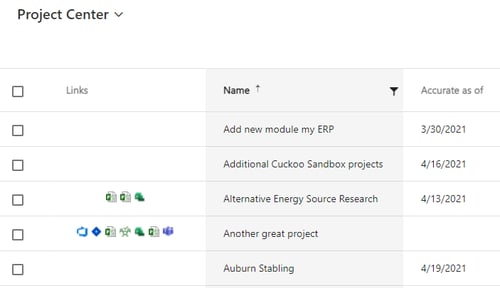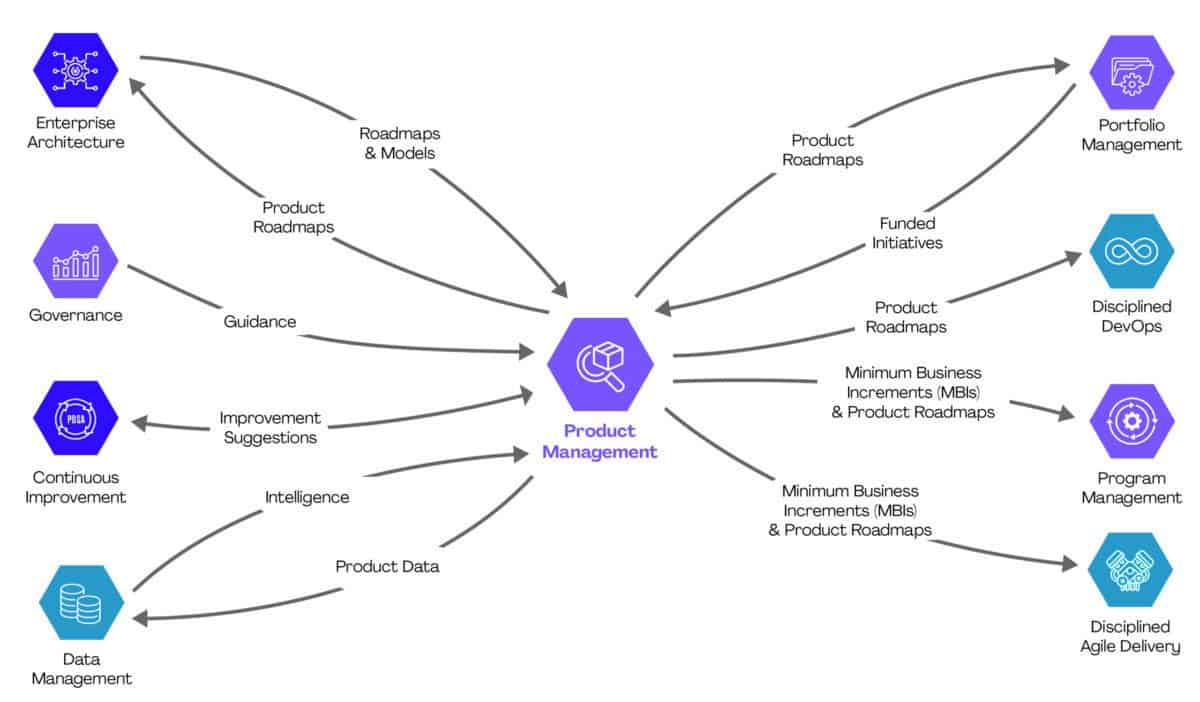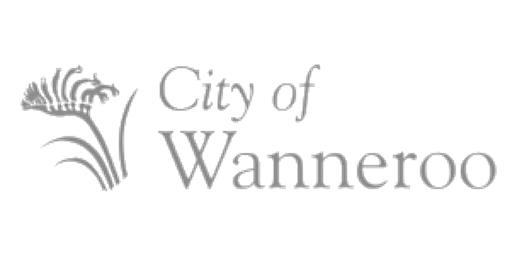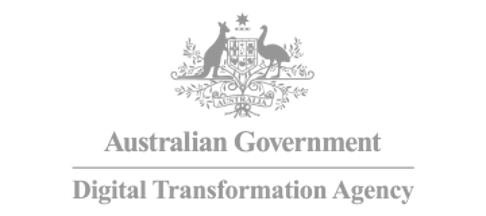PMO for ICT
Whether you are a government agency, a multinational company, a business in the private sector one thing is undeniable - information technologies are becoming more important than ever. Information and communication technologies (ICTs) have shifted from a back-office overhead to a critical strategic component as customers are interacting more and more through digital technologies.
However, many organisation’s have failed to adapt their processes and systems to properly accommodate the changing nature and needs of ICT in the current digital landscape. As a result, many organisations fail to bring out the best potential of their ICT projects and portfolios. That’s exactly where pmo365 is ready to help. We want to bring out the best of your organisation's ICT activities, initiatives and systems to optimise the investment in these functions. .
How pmo365 helps your organisation’s ICT Management

Visibility and control of all your activities
Giving your organisation the agility to adapt to the ever-changing ICT landscape through complete visibility and control of all your activities, resources (demand and capacity) and processes in real-time.

Critical data reports
Providing your PMOs with all the critical data to properly report and communicate the value and progress of product developments that are unique to ICT projects.

Integrating all your data, systems, processes and apps
Integrating all your data, systems, processes and apps onto a single platform so no matter what methodology or tools you use, you can get the most out of their capabilities.

Simplified resource management
Simplifying and optimising your resource management processes.

Unlimited training, resources and tools
Supplying all training, resources and tools to help your teams build the best practices that bring out the best of your PPM systems, be it SAFe, Waterfall, SCRUM, etc.
What is Information and Communication Technology (ICT) and its importance?
There is no single definition for ICT but the term generally refers to all the devices, networking components, applications and systems that allow people and organisations to interact with the digital world. As the world becomes even more digitally driven, the production, management and updating of these technologies are becoming more important than ever.
Advances in ICT have broprocessesught about many benefits for organisations from cost savings from automated business , big data revolutions which have fundamentally changed business models and marketing initiatives to ICT-enabled transactions through internet shopping and social media reforming how customers shop, communicate and interact.
The ICT space is also fast-paced and constantly changing. Organisations are having to constantly adapt, update and evolve to keep up with the innovation developments and get the most out of their technologies. Agility, iterative growth and measurable success are becoming more important than ever.
However, traditional ICT project management approaches are failing to meet the current technological development needs. To keep up with the change, there has been a definitive shift within the field to shift ICT management from a project management approach to a product management approach.
ICT Management shift from Project to Product Management
Many organisations are realising that the typical project management approach to ICT development is failing to achieve genuine results. Some noticeable issues with traditional project management approaches are listed include:
Project management approach is too slow and impractical for ICT development
With the traditional approach, teams have to wait for team leadership to establish a plan, designate funding, assemble technology teams and execute the project. Often leadership will review their progress on a monthly basis and check whether projects are on budget and on time. However, upon launching the product, it seems to fail to capture the intended results and has been outdone by a smaller organisation with less resources and less time.
The long-winded process of planning and the linear top-down approach does not afford organisation’s the agility to adapt to the fast paced environment. Additionally, the value and benchmarks of products are measured differently from projects resulting in additional time spent trying to convey the benefits and value of products.
Overemphasis on tracking and meeting milestone gives a false sense of security
Project management approaches have a high emphasis on tracking activities and meeting predetermined milestones. ICT projects are often an iterative, long-term and on-going project whose budgets may not be so easily outlined from the beginning. Additionally, many teams are used to working in a certain way that emphasizes measuring activities such as setting up meetings, completing tasks and creating deliverables. However, this over emphasis on progress does not place enough attention on genuine outcomes.
As a result of these issues, organisations are increasingly shifting their ICT management approach towards a product-focused approach with a Gartner report revealing 55% of organisations are moving taking on this change.
Although all products developed have customers, it doesn’t mean that all products are for external customers, ICT products customers’ can be internal staff and stakeholders, for example an ERP can be a product that is used by the finance department, the executives and other employees, ERP in this case is the product and of these roles are the customers.
What is the difference between Project Management and Product Management?
We’ve been talking about why project management approaches are no longer sufficient for ICT development and management, but what is the real difference between the two?
To start off, a project is a temporary assignment of clearly defined activities in a defined delivery time frame whereas a product does not necessarily have a set time frame and aims to create continuous value for customers. Where projects are often organised round achieving results from an internal leadership perspective, products are much more customer-focused. The need for this distinction is from the fact that customers’ needs change at a rapid pace and waiting for directives from the top-down would reduce the organisation’s ability to adapt fast enough.
The following are the main differences between ICT project and product management:
1. Budgeting differences between ICT Project Management and Product Management
A project management approach typically assigns a budget during the initial stages and is based upon predefined milestones completed during the project scoping stage. To make a new budget, a new project needs to be made. Product management funds projects based on its outputs with new funding being allocated as needed and on delivery of incremental results.
2. KPI & Success measurement between ICT Project Management and Product Management
Project management success is often measured by its ability to keep on-time, on budget and within scope. Product management approaches, meanwhile, evaluate success based on the team’s ability to deliver incremental value and align it to the organisation’s strategic objectives.
3. Risk Management between ICT Project Management and Product Management
With a project management approach, specifications and strategic decisions are made at the beginning and increase the risk on delivery due to its lack of adaptability. Product management approaches spread out the risk through longer time frames and multiple iterations, giving teams the opportunity to adjust the product features to incorrect assumptions and new strategic opportunities.
4. Prioritisation differences between ICT Project Management and Product Management
ICT development with a project management approach often focuses on delivering the product based on predefined requirements. Product-oriented management, instead, apply guided road maps and hypothesis testing that allow them to adapt their priorities while emphasizing on feature and business value delivery.
5. ICT Visibility between ICT Project Management and Product Management
Due to the complexity and differing measurements of success, ICT PMOs can sometimes fail to sift through the ICT process and properly communicate the progress and value of the ICT activities to key stakeholders. Product management approaches help leaders align and visualise the development work directly with the organisation’s strategic objectives, allowing for better visibility.
6. Timelines differences between ICT Project Management and Product Management
Projects typically have a defined start and end date with less emphasis on performance and health after the completion of the project. Product management approaches often implement multi year life cycles with emphasis on ongoing maintenance and health of the product.
Project Portfolio Management v. Product Portfolio Management
On a portfolio level, these two approaches essentially have the same central goal - to manage and optimise the work within their portfolio to achieve the most value for the business. However, as identified above, there are many differences in how success and progress are defined and measured.This makes it increasingly hard for the Project Management Office (PMO) to properly understand, visualize and communicate the product-related activities to key stakeholders and decision makers.
This issue is often caused by limitations in an organisation’s PPM systems which cannot accommodate seamless integration of different systems, processes and data. With pmo365, that is no longer an issue as we have the ability to integrate all your systems and apps onto your pre-existing premise (for example JIRA). This means no more missing data and filtering through different apps for critical information. Have all your data on one platform as your single source of truth and drastically improve your visibility and control over your portfolio.


The unique challenges of ICT Management and how pmo365 solves them
Due to the unique nature of the field, ICT management has its unique set of challenges that effective PPM systems need to address. These include:
Resource limitations and the PPM Capacity Crunch
As ICT projects become more iterative, their projects are becoming smaller but increase in frequency. As these projects or rather products do not typically have a specified end date and often occur over an extended period, outsourcing is not common as it would disrupt the continual flow and handover process of the product.
As a result, organisations have the big task of managing all these small activities whilst optimising the current resources to achieve the best results. Without a proper PPM system, organisations cannot effectively visualise the availability of their resources nor are able to easily control, manage and reallocate resources to where they are needed.
The issue which many C-Suites deal with, is that much of the information they are receiving from their PMO is not real-time, complete or accurate, and so they cannot act on them - potentially allowing for risky projects to run, and essential projects to be left untouched.




Integrating different tools and systems for different approaches
Due to the unique features of product management approaches, organisations are leaning more towards interactive management methodologies such as Agile, Scrum and Kanban and are investing in DevOps softwares. With different approaches come different tools and softwares.
Many organisations do not have the capacity to integrate all their different systems, tools and apps leading to a break in the flow of their processes. Some organisations believe they cannot integrate their PPM systems because they implement hybrid mixes of iterative and waterfall methodologies.
With pmo365, none of these are an issue. No matter what approach you use and software you use, we can integrate all your activities within your portfolio. If you use a Waterfall approach and use Microsoft Projects, no problem! If you use a Kanban approach and use JIRA or Azure DevOps, no problem too!
We can support and integrate all your activities on your pre-existing premise so you don’t have to migrate, coach and upskill all your employees onto a completely new system. With Power Automate, we can connect with just about any data source outside of the Microsoft ecosystem with JIRA, SAP, Oracle, Ellipse and ServiceNow just to name a few. Click here for the whole list of applications we can connect.
Agility through real-time visibility and control
The ICT space is fast-paced and constantly changing so being fast, adaptable and accurate is key. The problem for a lot of organisations is that their system does not give them real-time visibility over all the activities occurring within the organisation. Most key decision makers depend on incremental reports to make their decisions and execute strategies.
Impractical PPM systems will also inhibit the agility of project executions as they end up carrying long-winded bureaucratic practice through to their digital habits. Many organisations revert to tireless meetings because approval systems are not optimised or automated on their platforms.
With pmo365, we give your organisation the agility to keep up with ICT development needs. We do this by integrating all your systems, automating key approval systems and streamlining communication modes, all on your pre-existing premise in real-time.


pmo365 helps you throughout your Product Development Process
We support throughout the entirety of your product development process so you can bring the best out of your organisation’s portfolio.
As we mentioned above, there are many different management methodologies organisations can adopt and we do not believe there is ever a one-size-fits-all model for product management. However, the underlying development process can often be summarised into 4 distinct stages: Ideation, strategic planning, development and testing, and launching and As we mentioned above, there are many different management methodologies organisations can adopt and we do not believe there is ever a one-size-fits-all model for product management. However, the underlying development process can often be summarised into 4 distinct stages: Ideation, strategic planning, development and testing, and launching and commercialisation.
Ideation stage
This is where all the preliminary research, brainstorming and validation for potential initiatives, epics, features, and/or projects are made. During this stage, it is important to have proper systems and frameworks in place that not only foster out-of-the-box thinking, but can properly manage, evaluate and store ideas that can add value to the organisation.
With pmo365, we help you streamline this entire process through our project pipeline management support. We can simplify your idea gathering process, provide critical tools to evaluate the value of proposed ideas, automate approval processes, and integrate systems across the entire organistiona to allow for smooth handover between the ideation stage and the next stage - strategic planning.
Strategic Planning stage
Contrary to project management approaches which often have strong emphasis in waterfall or sequential scheduling, product management approaches work in roadmaps and hypothesis testing. This gives them flexibility to adapt to new discoveries and respond to changes that occur during the span of the project.
pmo365 supports your organisation during the planning process through integrating all your systems and processes on one platform so your teams can easily communicate the roadmaps and potential changes to all key stakeholders.
Development and Testing stage
Though the launch of the finished product is critical, through a product management approach it is not the end. The key to this stage is the continual tracking of user experience and feedback which will then inform the next iteration of the product. As a result, product development never truly ends - it's a continuous loop.
To help keep a consistent flow, pmo365’s integration of all your systems comes in handy. We make sure projects and products keep the same ID no matter where they are accessed throughout your systems. This way critical information pertaining to earlier iterations of the product are not lost and can easily be accessed and linked to current or future iterations. This makes the product handover process much easier and less time-consuming.
External Work Flows in Product Development
The diagram below from the Project Management Institute shows product managers communicate and collaborate with other functions of the organisation and their teams.

To be able to effectively communicate and collaborate, product managers need a proper PPM system that can easily facilitate the transfer of data in a smooth, efficient and safe way with other teams within the organisation. No surprise here, pmo365 helps you do that.
Still want to know more about how we can help your organisation’s ICT management? Make sure to book a free 30 minute PPM audit and speak directly with our PPM experts.
Our partners
We've worked with







Project Management Process: The Complete Guide from Start to Finish


Scrum Meetings: The Backbone of Agile Team Communication


Lag Time in Project Management: What It Is and Why It Matters

